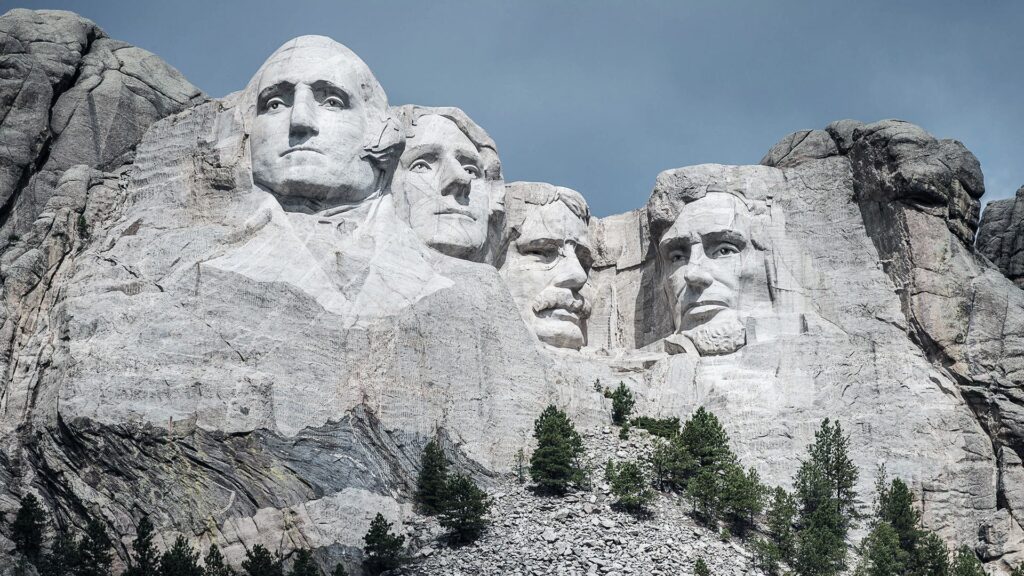Is the United States currently experiencing a national emergency? No matter when you read this, the answer is “yes.”
Technically, the United States has been in a constant state of emergency since November 1979, when Jimmy Carter responded to the Iran hostage crisis by issuing an executive order declaring a national emergency and blocking Iranian government property. Even though Iran released the hostages on Ronald Reagan’s inauguration day in 1981, Reagan renewed Carter’s emergency declaration every year during his presidency. Since then, every president has continued to renew the 1979 emergency—while also declaring many emergencies of their own.
When Donald Trump started his second term on January 20, 2025, the United States had around 40 active emergency declarations (no really, we are serious), including the national emergency George W. Bush declared in response to the 9/11 terrorist attacks. On his inauguration day, Trump initiated two more: a national energy emergency and an emergency at the U.S.-Mexican border.
It wasn’t always normal for the United States to have dozens of ongoing emergency declarations at the same time. Here’s a look at the history of national emergencies.
Early US Had No Rules for National Emergencies
Between the United States’s founding and World War I, U.S. presidents used emergency powers at their own discretion without officially declaring a state of emergency. One example is George Washington’s 1794 proclamation to deploy militia to suppress the Whiskey Rebellion. Another is Abraham Lincoln’s proclamation in April 1861 initiating a blockade on states that had seceded.
The first president to formally declare a state of emergency was Woodrow Wilson. On February 5, 1917—a couple of months before the United States entered World War I—Wilson signed a proclamation stating that there was “a national emergency arising from the insufficiency of maritime tonnage,” and called on the country to remedy this. This proclamation was active until 1921, when the U.S. government terminated it along with other wartime measures.
The next president to declare a national emergency was Franklin Delano Roosevelt. On March 6, 1933—just two days into his first term, and in the depths of the Great Depression—he issued a proclamation stating that heavy bank withdrawals and speculation had “created a national emergency,” and that in response he was closing banks until March 9. After extending this “bank holiday,” he quickly passed the Emergency Banking Act, and then issued an executive order on March 10 saying banks could reopen after meeting certain conditions.
FDR issued two other national emergency proclamations in September 1939 and May 1941, after World War II had begun but before the United States entered it. The U.S. government terminated these war-related proclamations after WWII ended, but that wasn’t the case with a national emergency proclamation that Harry S. Truman made during the Korean War.
Congress Tries to Rein in National Emergencies
United States Marines disembarking from a helicopter near Da Nang Air Base in South Vietnam during the Vietnam War, May 1965.
Truman’s Korean War proclamation from December 1950 remained active into the 1970s, and presidents used this national emergency declaration to access powers for a completely different conflict—the Vietnam War—without going through Congress. During that decade, Congressional investigations into executive overreach led to a new law that ended Truman’s national emergency and established new rules for presidential emergency declarations.
“What happened is that there were all of these different sort of executive branch overreaches that were happening at the same time,” says Elizabeth Goitein, a senior director of the liberty and national security program at NYU Law’s Brennan Center for Justice. There was the “bombing of Cambodia, there was Watergate, there was COINTELPRO, and as these things were coming to light, Congress just began a much more sort of systematic reexamination of executive power.”
A Senate special committee formed in 1973 found that there were four outdated national emergencies still in effect: Truman’s emergency, two emergencies that Richard Nixon had declared and FDR’s bank emergency from 1933. The committee’s findings led Congress to pass the National Emergencies Act of 1976, which ended the four ongoing emergencies and established a new procedure for presidents to declare states of emergency.
Under the 1976 law, presidents would have to renew a national emergency every year for it to continue. What the law’s supporters didn’t anticipate was that presidents might just keep renewing multiple outdated emergencies for decades.
With New Law, Every Day Is a National Emergency
On September 14, 2001, President George W. Bush flew to New York City and visited the World Trade Center site.
After Carter, presidents greatly expanded the use of national emergency declarations, which can give them access to at least 150 statutory powers. Reagan declared seven new states of emergency during his administration, two of which continued into George W. Bush’s presidency. Bill Clinton declared 17 new states of emergency during his two terms, five of which were still in effect when Joe Biden left office in January 2025.
Many of the emergency declarations that presidents renew over and over allow them to impose economic sanctions on foreign actors. Others, like the 9/11 declaration, allow the president to call in military reservists or implement stop-loss, Goitein says. (Stop-loss is the involuntary extension of a military tour of duty.)
Crucially, these declarations allow presidents to make decisions about foreign policy, the military and other issues without going through Congress. Because of this, scholars like Goitein have criticized the constant renewal of national emergencies as an overreach of executive power.
“We’re still in a state of emergency over the Iran hostage crisis from 1979, because that’s when we started the sanctions and we still want to do them,” she says. “The hostage crisis is not currently an emergency.”



